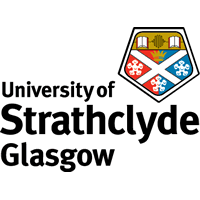
About the course
Course content
Why this course?
This course is a conversion course that will give you a grounding in computer programming. There's a particular focus on in-demand mobile and web applications, software engineering, and computer security. You'll learn through classes and extensive lab based work. You'll undertake a practical software development dissertation project. All classes within the course are tailored to the needs of students from non-computing backgrounds. They'll equip you with the key skills you'll need to begin a successful career as a software developer.
This course will prepare you for a professional and rewarding career in software development not only within the IT sector, but within many other sectors including education, engineering, health, finance, government, manufacturing, retail, and transport.
What you’ll study
- programming in Python, JavaScript and Java, three of the most popular programming languages. For example, Spotify, Twitter and Open Office are built using these languages.
- mobile app development using HTML5/JavaScript providing you with the skills to develop graphical user interfaces for mobile applications.
- database design & development using Oracle SQL providing you with the fundamental skills that underpin the global explosion and demand for Big Data.
- state-of-the-art software engineering methodologies providing you with professional software development skills, including widely use rapid development Agile methods.
- cyber security tools and technologies including experience of the tools and techniques used in security exploits.
You'll also develop other valuable transferable skills including effective presentation, team working, and report writing, which will further enhance your skills as a future leader.
Facilities
The Department of Computer & Information Sciences is based on levels 11 to 14 of the Livingstone Tower. We have a large quiet study zone and a large social zone for working on group activities.
There are three large computer laboratories within the department, each containing state-of-the-art equipment with over 175 dual boot Windows and Linux machines available. Each lab machine is equipped with up-to-date software.
All departmental machines are linked by a high-speed local area network and operate under a single network file system so you can access your files from any of our machines. High-speed wireless access is also available throughout the department.
The University has a large modern library which contains all of the materials that you need for your course. Many of the books are also available online electronically meaning they are available to all students at all times.
Careers
Software Development graduates are highly employable and can look forward to well-paid professional careers. You could end up designing and building the digital technologies that underpin the global economy and, indeed, every aspect of human activity from recreation through healthcare to business and the natural environment.
Example roles include:
- Software Developer (Java/Javascript/Python): As software developer you'll be playing a key role in the design, installation, testing and maintenance of software systems. Your programs will be the key driver for the success of a business and will enhance research.
- Software Engineer (Agile/Scrum): As software engineer you'll apply engineering principles to the creation of software. You will oversee the design process and connect the client’s needs with applicable technology solutions.
- Web Developer (Javascript/HTML5): Similar to the software developer role, but with a focus for web sites and services developed using Web-specific languages such as Javascript, HTML5 or PHP.
- Database Developer (SQL/Oracle): You will develop databases that satisfy the information needs of your organization and which underpin Big Data. This will support decision-making within a business and knowledge-discovery in research.
- Business Analyst: as a business analyst you will identify improvements that can be made to organisational systems, write specifications for their modification and enhancement, and be involved in the design of new IT solutions to improve business efficiency.
Strathclyde University provides a range of professional development services, including career support services introduced during induction and offered throughout the period of study and even after graduation, to help our students achieve their career ambitions.